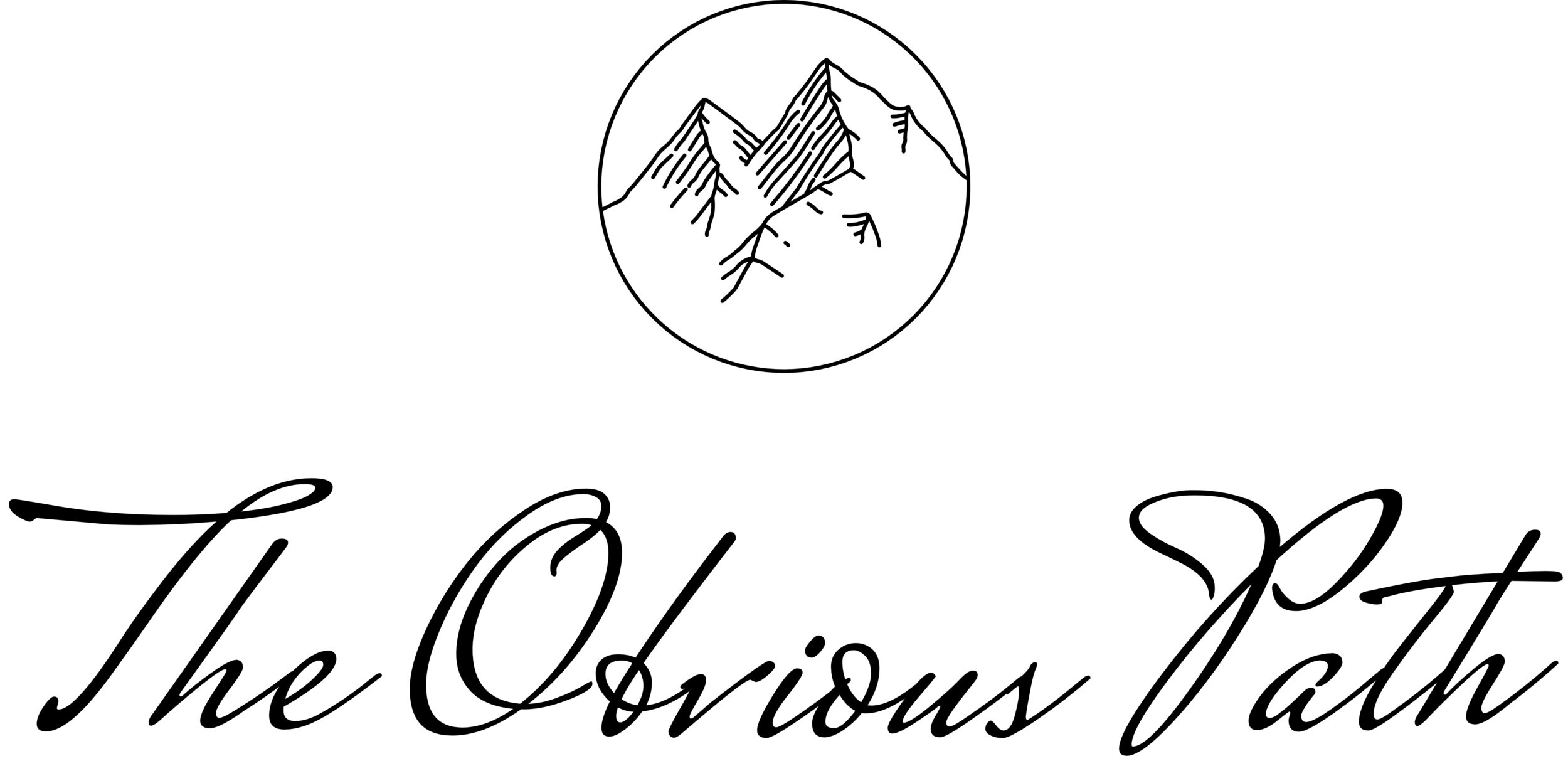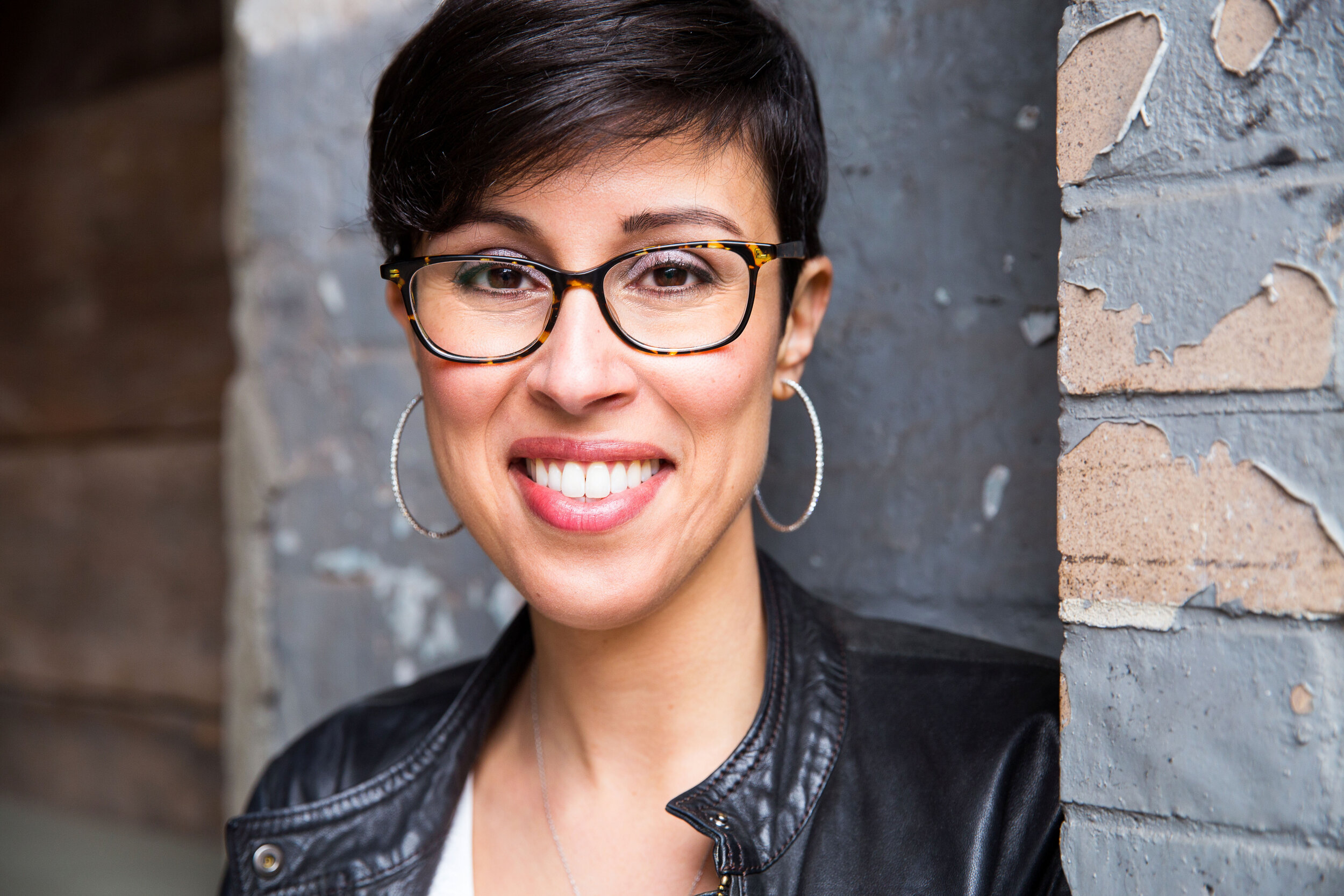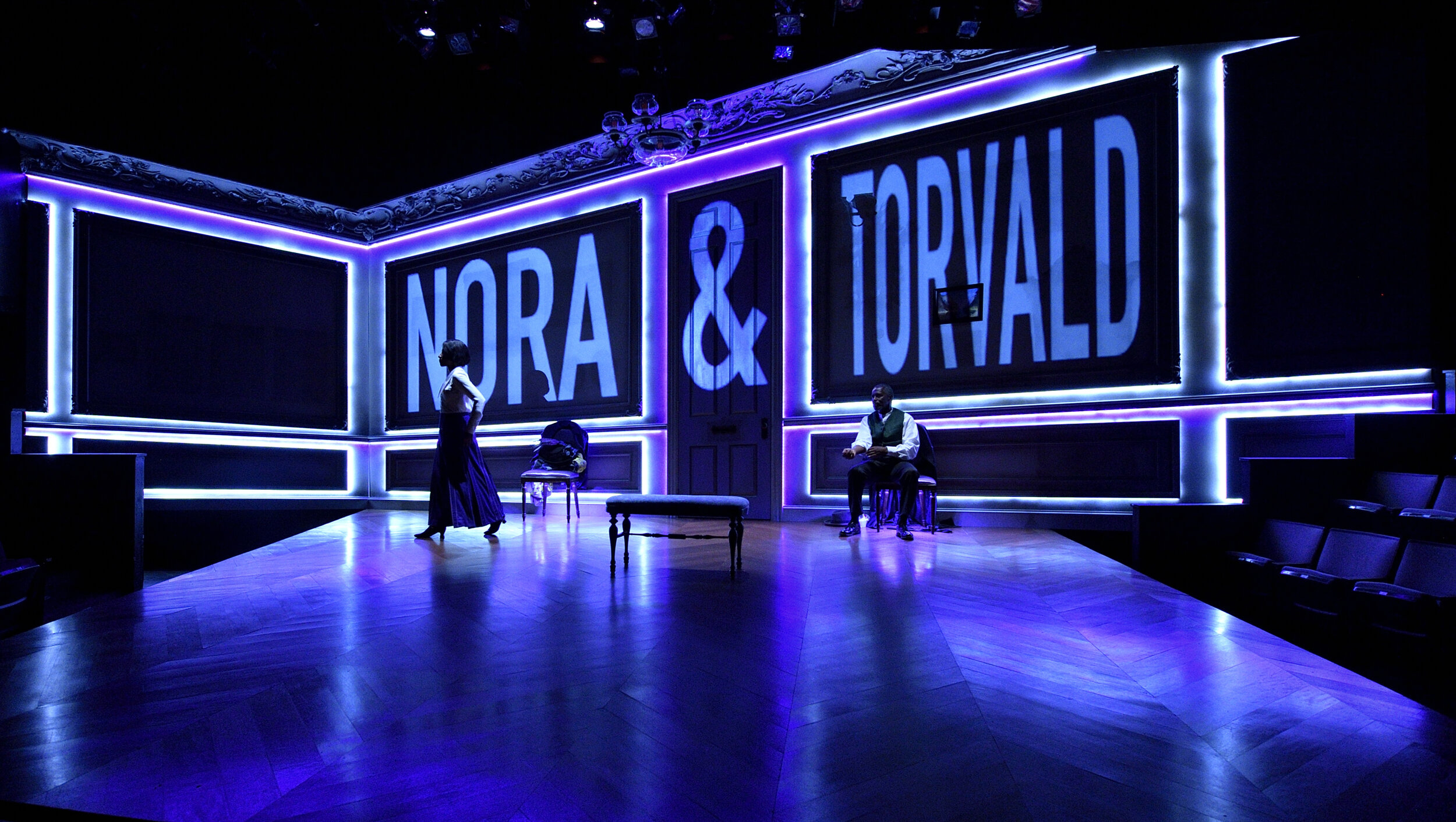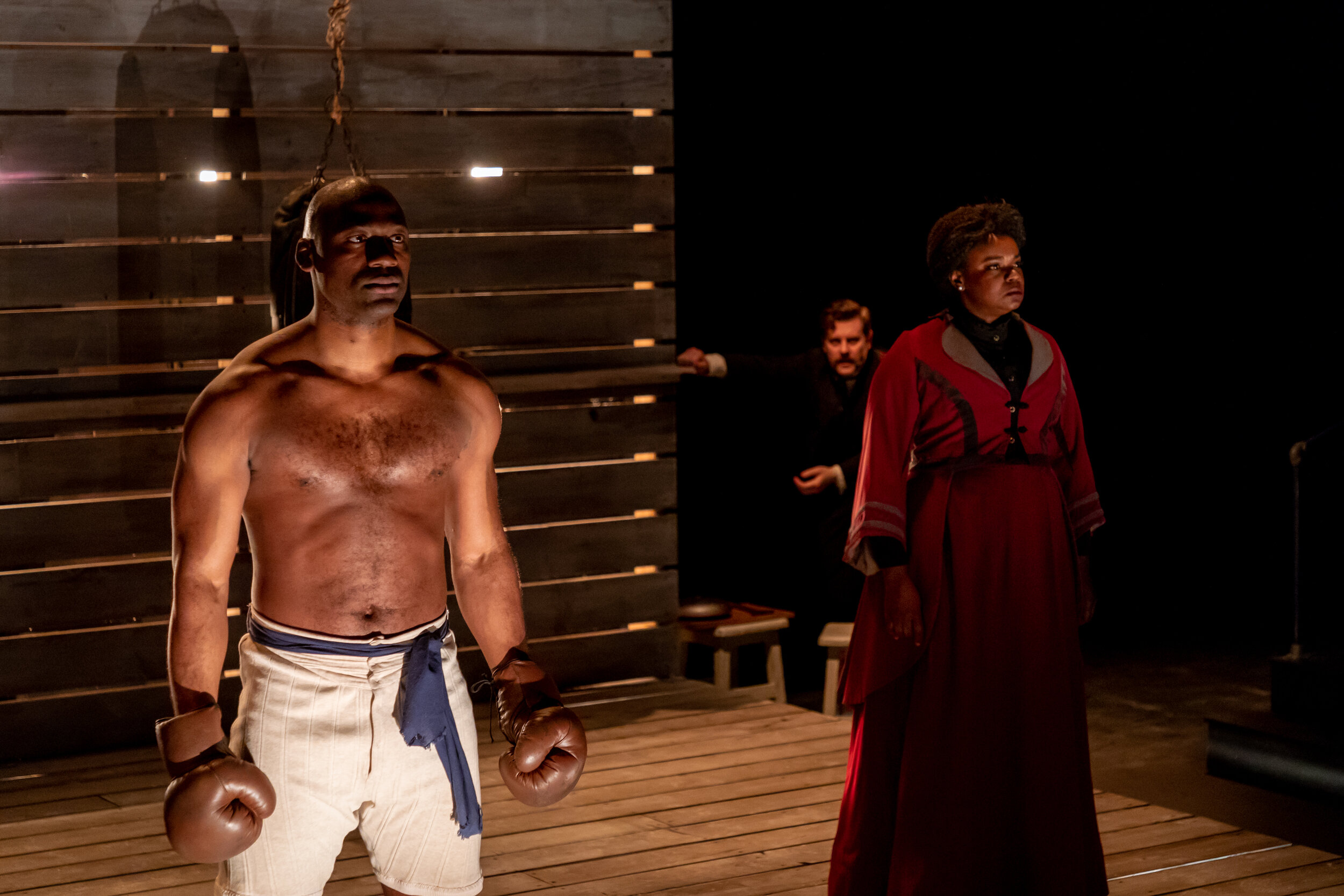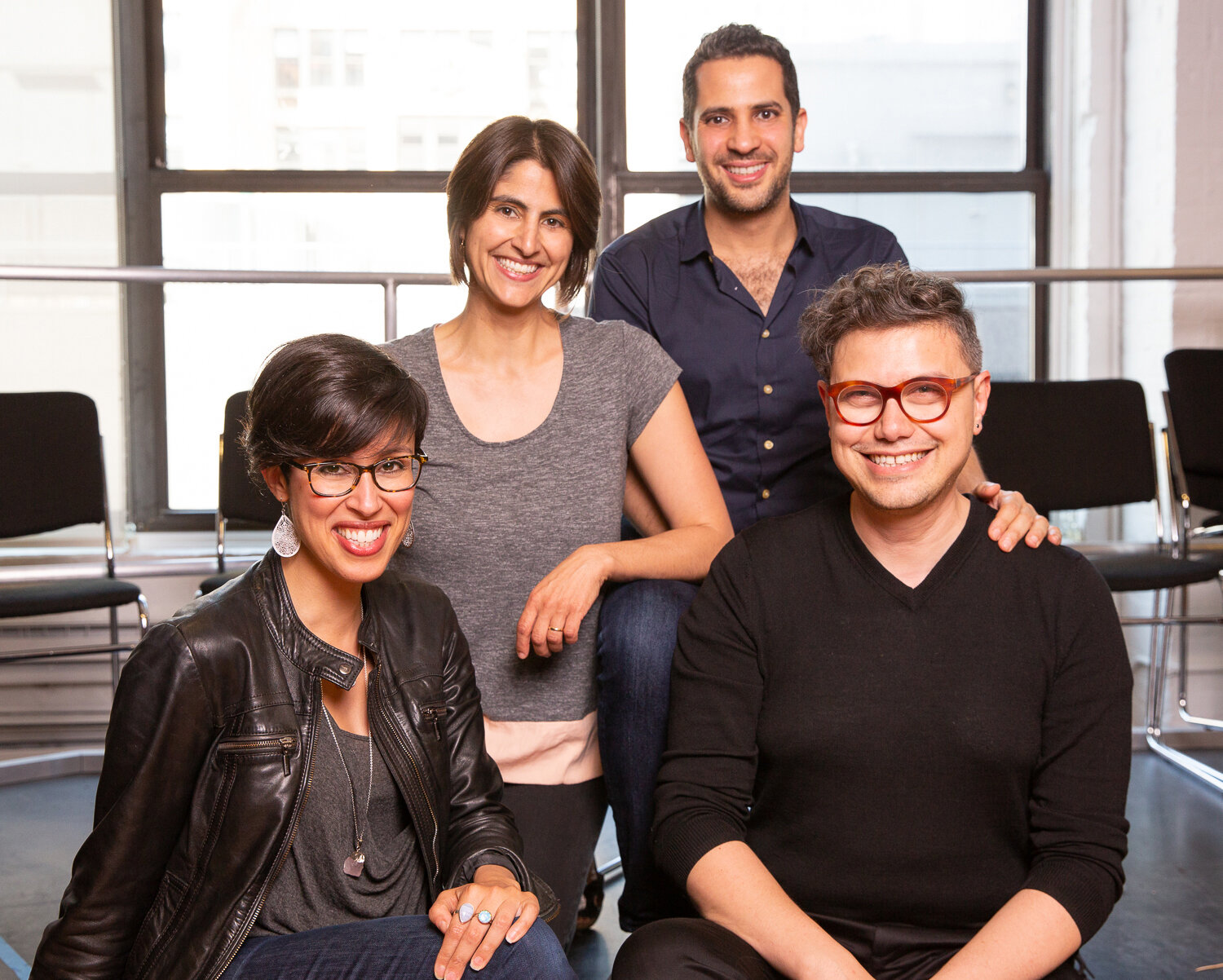Pirronne Yousefzadeh
From Peter: Everyone that’s worked with Pirronne probably has a story of how she turned their world upside down… Here’s mine.
I met Pirronne when I was an understudy for a production of The Invisible Hand she directed at Cleveland Play House. Not only was she a brilliant, creative, and inspiring as a director, she did something I’d never seen before in a rehearsal room. She would actively walk up to me, almost once a rehearsal, to ask what I thought about certain moments. Mind you, the actors in the show were phenomenal and Pirronne is one of the most breathtakingly dynamic directors you’ll see. She didn’t need my help. Yet, day by day, she made this gigantic gesture to say: “You’re a part of this. You matter.”
That’s who Pirronne is. She has worked tirelessly to rise to a position of leadership, and now that’s she’s there, you’ll still find her actively walking to the edge of our artistic circles, finding the underrepresented voices and telling them, “You matter.”
She folds her identity into her work, often sacrificing personal gain, to make sure she is making work that aligns with her values. If that isn’t a goal for the rest of us, I don’t know what is.
The way Pirronne conducts herself has inspired us to be more thoughtful, intentional, and courageous in the questions that we ask. We owe a great debt to Pirronne for this courage and many things she has done for us over the years. So, without further ado, one of our personal heroes, a constant source of our inspiration, and an irreplaceable figure for the future of the American theatre, Pirronne Yousefzadeh.
Pirronne- two r’s, two n’s! We’re honored to have you help launch the Director portion of our blog. Would you briefly introduce yourself to our readers?:
Sure thing! Hi! I’m the youngest of three and grew up on the intersection of the Midwest and Middle East, in Iowa City, Chicago’s southside, and then the northwest suburb of Skokie, Illinois, in the home of my parents, both Iranian immigrants. They took us to touring Broadway musicals as kids, and I was supposed to like theatre as a hobby while I did something respectable like become a neurosurgeon or engineer. I fell in love with acting in high school, and from acting, directing, and then, as they say, the rest is history.
Can you talk about what you learned in your time as an actor and how you decided it wasn’t the career you wanted to pursue?
I had incredible acting teachers in college, and it’s because of them that I know how to talk to an actor. They broke down the fundamentals so brilliantly, and I clocked how much I responded to direction and coaching in regards to action and objective, not feelings or states of being. Then, there were times when I worked with directors who didn’t speak that same language with me, so I’d play the game with myself, “how would I say this to myself if I were the director?”. I suppose those were my very first directing exercises, before I took a class or directed anything myself.
My first directing experience was at the Globe Theatre in London the summer after my sophomore year, where I attended a four-week acting and directing intensive through my alma mater, Washington University in St. Louis. I vividly remember my first staging rehearsal for my scene (King Lear, Gloucester and Edmund), and something just came alive. I realized that what was so difficult for me as an actor—staying present to the character’s journey, and not getting sucked into the bigger picture outside of me—was exactly the skill and vision I needed as a director.
Over the years, I kept acting, but part of the issue was that back then, the industry didn’t really have a place for an Iranian-American gal like me. Also I wasn’t that good, but I suspect that I might have given it more of chance if I saw casting opportunities for MENASA actors that weren’t, well, terrorists.
I figured that my identity didn’t matter if I became a director because I’d be offstage and unseen, and I was relieved at that notion. Little did I know how much it would actually become so critical and central to the work I do and believe in.
Directing, for us outsiders, seems like a difficult Catch-22. You can’t get credits without education, you can’t get the education without the credits. What were the steps you took in the first year to start your transition?
Tell me about it! It’s a huge challenge, and thankfully, I was able to find a number of artistic development opportunities as I navigated that murky time between when I finished graduate school and when I had enough experience for a professional theatre to take a chance on me. I had a formative experience in the New York Theatre Workshops 2050 Fellowship program, as well as the Soho Rep Writer/Director Lab and Williamstown’s Sagal Fellowship.
While I applied for every residency, fellowship, and program that might serve my craft, I also did a lot of academic directing work. I found that while professional theatres wouldn’t necessarily give me a shot, I could certainly do the work I loved in an academic environment, where oftentimes, the programming is more experimental because the financial stakes aren’t so high. I got to cut my teeth on Blood Wedding, Mr. Burns, and We Are Proud to Present… just to name a few.
And the last of those three titles was how I met Mark Cuddy, the Artistic Director at Geva. Unbeknownst to me, I had cast his son Gus in the show, so I often tell him that it’s a darn good thing he’s such a talented actor, because now I owe him my entire career.
You continue to be a successful freelance director as you simultaneously tackle being Associate Artistic Director and Director of Engagement at Geva Theatre Center. Can you talk about the differences of freelance directing and being on an Artistic staff?
The two feed each other, I find. It’s very important to me that I retain my freelance work alongside my full-time responsibilities at Geva not only for my own personal creative fulfillment, but because my freelance experiences inform my work and contributions at Geva. My antennae are up for best practices whenever I work elsewhere, and I often return to Rochester with a proposal that begins, “So, X theatre does this amazing thing where…”.
So far, my institutional leadership experience has also shifted how I freelance. Knowing the inner workings makes me a more empathic, self-aware guest artist. Because I understand what the many factors and parameters are that go into selecting and then producing a particular play, I can strategize and prioritize more effectively than I did before.
The biggest challenge, I would say, is creating adequate space for both. It’s easy to get sucked into emails during rehearsal breaks, whether I’m in production at Geva or elsewhere. So, the tension between the two facets of my artistic life has demanded that I set up better boundaries for myself, and get even more organized when it comes to to-do lists and calendar alerts.
Can you tell us about how the creation and community of the Maia Directors has impacted your artistic and personal life?
Maia Directors formed out of a need for community. Kareem Fahmy, Evren Odcikin, and Megan Sandberg-Zakian and I all attended the MENA convening at the Lark several years ago, and realized that there were four of us Middle Eastern directors and somehow, we weren’t already regularly talking to each other. When we started our monthly conference calls, parallel themes emerged as we articulated the challenges and trends in our individual careers. We were each often asked to offer pro bono casting support whenever colleagues were in search of MENASA actors, and also faced a certain set of assumptions when hired as directors that we could, for instance, double as a dialect or language coach.
We formed Maia to formalize our skills and collective experience, and to make the work we do—and our extraordinary MENASA community—more visible. By offering casting and dramaturgical support as well as cultural consultancy work, we communicate to artists and organizations that it is feasible to do this work, that the talent is out there, and that with the right support, they can do it well. By making this work visible, we seek to make it possible.
At the onset of your career, what was the definition of success you were aspiring to achieve? Has your definition of success shifted or remained the same?
I think I largely defined success as a) an off-Broadway and regional career and b) financial sustainability. This definition has shifted immensely, in large part because my goals were pretty selfish, and didn’t align with what I later realized non-profit theatre is intended to be, which is a public service.
Nowadays, I think about success in terms of the extent to which I am able to make work in alignment with my values. Success is casting actors of color as the romantic leads when the play isn’t specifically about race. It’s about hiring all-female design teams not because they’re women, but because they’re the best at what they do. It’s using my power and privilege as a director and artistic leader to create the kind of theatre where everyone can feel seen, heard, and represented.
I still see that career as being in the regional and New York Off-Broadway theatre, sure. But to me, those goals are no longer independent of the values I have to live by in order to attain them. Whatever personal success may await me, I have to build my way there with a commitment to the politics and values that are my north star. To me, it’s the difference between a kind of success that serves my ego, and the kind that fills my soul.
What’s one thing you would recommend for a young director to do and one thing you would advise a young director to avoid?
As a young director, I think I chased my career the way I dated: always seeking out opportunities from those who barely gave me the time of day. If a theatre or a particular artistic leader seemed cruelly unavailable, it only made me want to pursue them more. At the same time, I dismissed and undermined the opportunities that did come my way.
So, I would say, go where the energy is. If there are leaders and/or organizations that believe in you and those feel like good, healthy, inspiring relationships, nurture them. Meanwhile, sure, pursue the seemingly unattainable, but don’t hang your entire worth as an artist on whether X theatre gives you a call. These dynamics are born of arbitrary measures of success, and really, they keep you from your work. Go where the energy is. The folks who are excited about you aren’t less than or inferior to those who simply don’t know your brilliance yet.
Are you at the top of your mountain?
Never. If there’s anything my trajectory so far has taught me, it’s that this is a marathon, and not a sprint. I am happy to be where I am now, but I also know that nothing is permanent, and that I will be the most fulfilled, effective, and self-actualized artist I can be if I’m in a state of perpetual learning, discovery, and curiosity. If I feel like I’ve learned what I can learn from a particular experience and I’m spinning my wheels, that’s a recipe for complacency, and complacency breeds mediocrity. My charge to myself is to keep myself on my toes, to always have some feeling of “I don’t know how to do this.” I need a healthy bit of terror to excavate my potential, and to allow my craft to ebb, flow, and transform.
RAPID FIRE!
Favorite Broadway show of all time: Indecent, hands down.
TV show that you love: Schitt’s Creek, Last Week Tonight, and I’m a forever fan of Six Feet Under.
On my commute, I’m listening to ________: Lizzo, Beyonce’s Homecoming, Anna Ternheim, Alabama Shakes, and St. Vincent.
Any other obsessions?: Yoga, essential oils, anti-racism, Elizabeth Warren, perfecting my homemade hummus.
My cat’s name is Ruth Bader Ginspurr and she’s better than a dog because she’s just as loving but takes herself to the bathroom.
Social media is ________: a great place for political activism and cat photos.
Religious, Spiritual, or nah?: Spiritual.
Most under-appreciated food: Tater tots.
Actor-ism that frustrates you: When an actor asks me a question that is actually a (thinly) veiled note for their scene partner. It communicates a mistrust of not only me, but their castmate, and it’s just plain tacky.
Biggest beef with the business: The tokenism of people of color in lieu of the difficult, soul-searching, and at times, painful work of anti-racism and true inclusion.
I get inspired when _______: I teach. That dose of enthusiasm and openness and the absence of cynicism is deeply rejuvenating, every time.
Anything you’d like to promote?: If you’re near or in Louisville, KY this winter, come see The Wolves. And if you’re an artist or organization seeking to engage with MENASA work, check out www.maiadirectors.com
Photo acknowledgments:
Headshot - Photo by Christine Jean Chambers
A Doll's House Part 2 - Photo by Jonathan Roberts. Pictured: Zuleyma Guevara and Kim Sullivan. Designed by Reid Thompson, Valérie Thérèse Bart, Cecilia Durbin, Phlip Allgeier & Kate Marvin. Actors Theatre of Louisville
The Royale - Photo by Teresa Mogil. Pictured: Jamal James, Lisa Tharps & Sean Meehan. Designed by Seth Reiser, Sarafina Bush & Chris Lane, Rocio Mendez, Movement Director
Maia Directors - Photo by Al Foote III. Front row (left to right): Pirronne Yousefzadeh, Evren Odcikin, Back row (left to right): Megan Sandberg-Zakian, Kareem Fahmy
